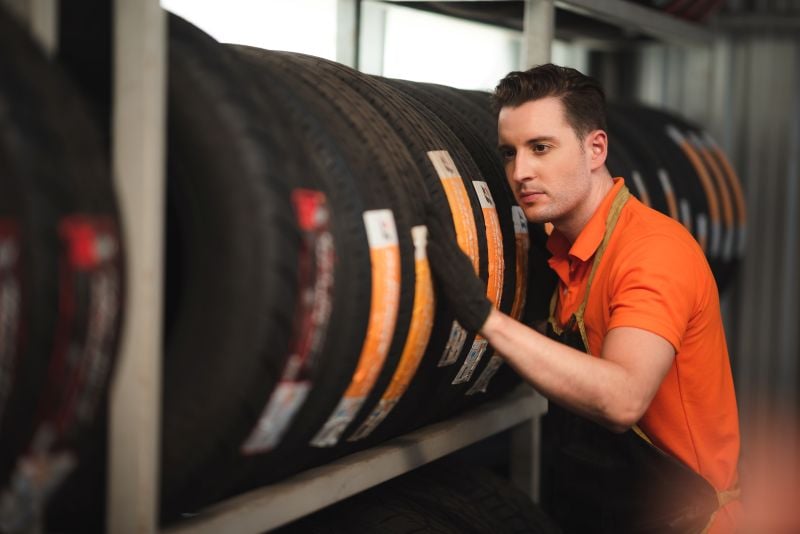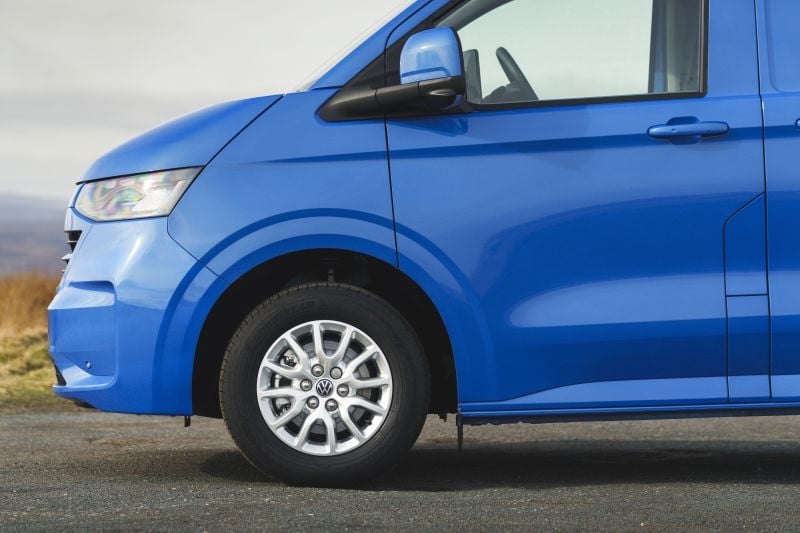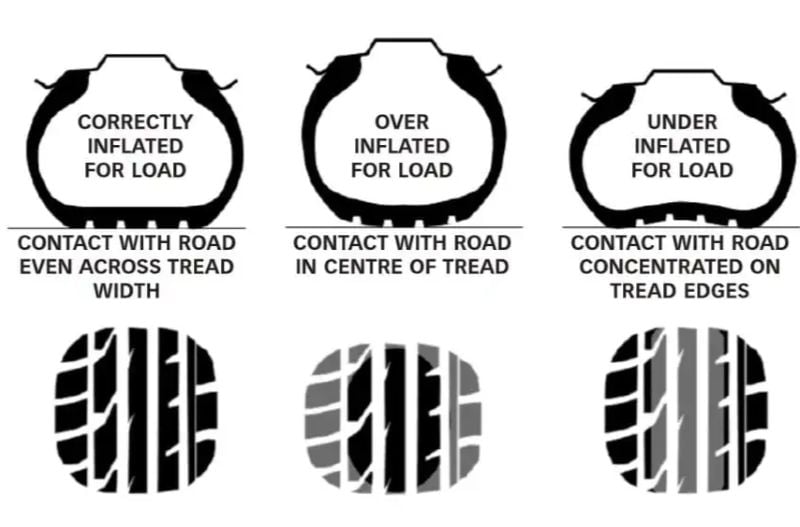Why Having the Right Tyres on your Van Matters

While it’s all well and good getting a new van that comes with a capacious load area, offers a generous payload and is packed with all the gizmos you could want, it means nothing there isn’t a tyre at each corner keeping you on the road.
Indeed, as the only component of a vehicle that makes contact with the road surface you’re driving on, it goes without saying that those four rubber rings serve a critical purpose.
For vans, however, their specially designed tyres take on multiple responsibilities beyond simply keeping you on the straight and narrow, including having reinforced sidewalls to withstand heavy weights and handle higher tyre pressures.
It’s why the tyres you’d fit to a car are not suitable for most vans, though smaller models (particularly car-derived vans) may have this option.
With October marking the start of Tyre Safety Month, Vansdirect delves into all things rubber to find out why having the right tyres for your van will keep you secure and maybe even save you some cash too.

What Is Tyre Safety Month?
Tyre Safety Month is an annual road safety awareness campaign led by the charity TyreSafe that is held every October. Its mission is to highlight the importance of proper tyre care to ensure safety on the road and compliance with the law.
The campaign’s aim is to reduce tyre-related accidents by educating drivers on how to check tyre pressure, tread depth and overall condition, as well as help to save money and to avoid MOT failures.
Why Your Van’s Tyres Matter
Safety – Tyres are the grip between your van and the road surface, putting them at the precipice of vehicle safety and maintenance. While tyres are designed to withstand huge forces and be effective in myriad weather conditions, they inevitably wear over time so lower the tread, lower the grip. For vans, the size and weight of a payload can affect the way the vehicle behaves on the road, so be mindful of your tyre pressures.
Legal - If you regularly carry heavy payloads in your van, tyres will wear quicker and may also seep pressure, so it is important to carry out regular checks not only for safety, but to ensure you’re within the legal threshold for a roadworthy vehicle. For a van to pass its MOT, the tyre tread must be at least 1.6mm and the sidewall must be in good condition.
Reassurance – A good set of tyres can transform the handling of your van and give you reassurance when on the road.
Save Money – Ensuring the tyres on your van are inflated to the correct (manufacturer recommended) tyre pressure and haven’t worn excessively can create some welcome savings at the fuel pump too. Indeed, if these are correct then there is less rolling resistance, which means an improvement in fuel economy, plus more durability.

What is the Difference Between Van and Car Tyres?
Tyres for vans are specially designed to account for the stress of a commercial vehicle in its most extreme set-up, such as at the limit of its payload.
These harsher conditions mean van tyres have reinforced sidewalls and a more robust construction to withstand heavy loads and prove more durable for up to 20,000 miles.
Tyres for vans can be identified by the ‘C’ marker used to denote ‘commercial’.
Additionally, there are XL (Extra Load) and RF (Reinforced) van tyres available for models built for special load carrying requirements.

How Can I Tell If My Van’s Tyres are Safe?
Check Tyre Pressure – If a tyre is under-inflated (or overloaded), excess heat builds up and increases the tyre’s likeliness to deflate, which poses a significant safety threat. Details of the correct tyre pressures for your van, as stipulated by the manufacturer, can be found in the vehicle handbook.
Measure Van Tread Depth – For a van to pass its MOT, the tyre tread depth should be no less than 1.6mm. The easiest way to check this is to use a 20 pence piece and nestle it into the tread grooves – if the outer rim of the coin is visible, the tread is likely below the legal limit and needs to be replaced.
Assess for Wear and Damage – While the sidewalls on van tyres are reinforced and sturdier, they can become damaged – such as on a kerb - with cuts or dents. While this may not puncture the tyre, it can degrade over time and leave the tyre at risk of deflation. Check to ensure your tyres are don’t have any flat spots that may have been caused by the wheels locking under braking.
Which Brands Sell Tyres for Vans?
Nearly all the major tyre manufacturers that produce tyres for cars also have a line of specially-constructed van tyres.
This includes Bridgestone, Goodyear, Michelin, Pirelli, Continental and Dunlop, plus other brands such as Falken, Hankook, Avon, Maxxis, BF Goodrich and Kumho.

















